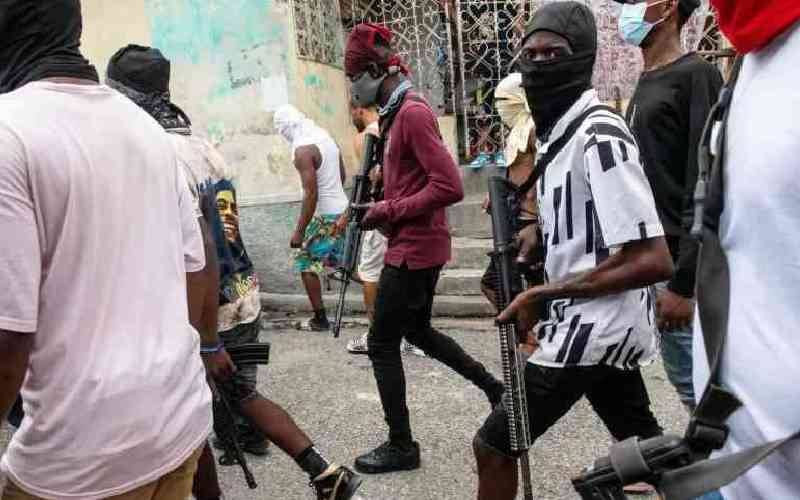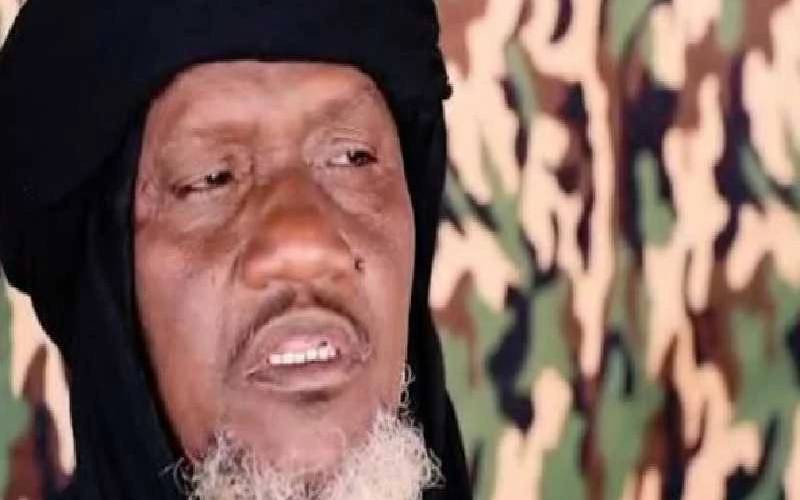The exit of Cabinet Secretary Joseph ole Lenku and IG David Kimaiyo was an unfortunate but necessary first step towards securing Kenya. Unfortunate because in substantive terms, Kenya’s security situation has little to do with the inadequacies, real or imagined, of either Ole Lenku or Kimaiyo.
But as I argued in this column last week, public confidence in that duo had collapsed so spectacularly that the public support that is necessary in a war on insecurity could not have been obtained for as long as they were in charge. However, these two gentlemen’s being out of the security picture should not deceive us that we are out of the woods.
The entire security sector requires a fresh strategy for dealing with the seeming runaway insecurity, particularly that relating to terrorism in the north and at the Coast. But our success in this endeavor will not come from the proposals of the numerous experts I have watched on national TV, including clearly clueless charlatans who feed us with a daily menu of pedestrian proposals on how to deal with the complex security issues.
Some naively argue that we will only secure ourselves if we get out of Somalia, forgetting that our initial entry into Somalia arose out of attacks in our territory and that it would be impossible to guarantee security in Kenya if Somalia remains a lawless bandit land. I have even heard robust arguments by “expert” revisionists that we must read from the Ethiopia script.
According to this lot, we must take back all these dangerous freedoms that the Constitution has given the citizen. All I ask is that I be shown any autocratic police state that has been sustainable for any length of time.
Let us never forget that there were legitimate reasons why the powers of the Executive over the security sector were reduced. In reality, however, the President, who chairs the National Security Council, and the Executive, which gives policy direction on all security matters, retains sufficient powers to manage the security sector. In any event, last week’s occurrences showed us that if the cause is right, the power of the Presidency is weighty enough to override procedural requirements.
The Constitution’s concern, however, is to ensure the exercise of the still expansive powers of the President protect the security services’ operational independence and protect the citizen from possible abuse by these services. Our past showed us how destructive a police force that is entirely at the behest of the presidency can be. On freedoms guaranteed under our Bill of Rights, we must remember that our Constitution allows any rights to be limited, only requiring that such limitation must be by law.
The old days of arbitrary limitations on the basis of elusive and ill defined “public order and national security” are dead and gone. Consequently, if Parliament feels at any time that there are certain rights that need to be limited for the general good, it must pass a limiting law.
Finally, numerous “experts” have also dismissed President Kenyatta’s useful, albeit wrongly timed, demand that we take our personal role in security seriously. Ignoring the timing of the exhortation and the unfortunate rape illustration, the President was right. One of the most disturbing concerns on security is the extent to which we have become spectators and complainers as our security deteriorates.
Does anyone believe that none of the residents of Mandera, Wajir or Kilifi were aware of the planning for the attacks in those areas? What about the 30 Chinese who were living in the upmarket Runda suburb? No neighbour or worker had been concerned?
I do not advocate an intrusive neighborhood watch policy but I bet that if we truly believed that we have a core role in ensuring security, we would do better. Call it Nyumba Kumi or whatever other tag; the reality is that a more alert citizenry will reduce crime significantly.
That of course must be part of a wider agenda that includes better community policing, effective police responsiveness, more adequate protection of “whistle blowers” and a citizenry that has faith in the overall security apparatus. General Joseph Nkaissery, assuming he gets the job, has his work cut out for him!
 The Standard Group Plc is a
multi-media organization with investments in media platforms spanning newspaper
print operations, television, radio broadcasting, digital and online services. The
Standard Group is recognized as a leading multi-media house in Kenya with a key
influence in matters of national and international interest.
The Standard Group Plc is a
multi-media organization with investments in media platforms spanning newspaper
print operations, television, radio broadcasting, digital and online services. The
Standard Group is recognized as a leading multi-media house in Kenya with a key
influence in matters of national and international interest.
 The Standard Group Plc is a
multi-media organization with investments in media platforms spanning newspaper
print operations, television, radio broadcasting, digital and online services. The
Standard Group is recognized as a leading multi-media house in Kenya with a key
influence in matters of national and international interest.
The Standard Group Plc is a
multi-media organization with investments in media platforms spanning newspaper
print operations, television, radio broadcasting, digital and online services. The
Standard Group is recognized as a leading multi-media house in Kenya with a key
influence in matters of national and international interest.








